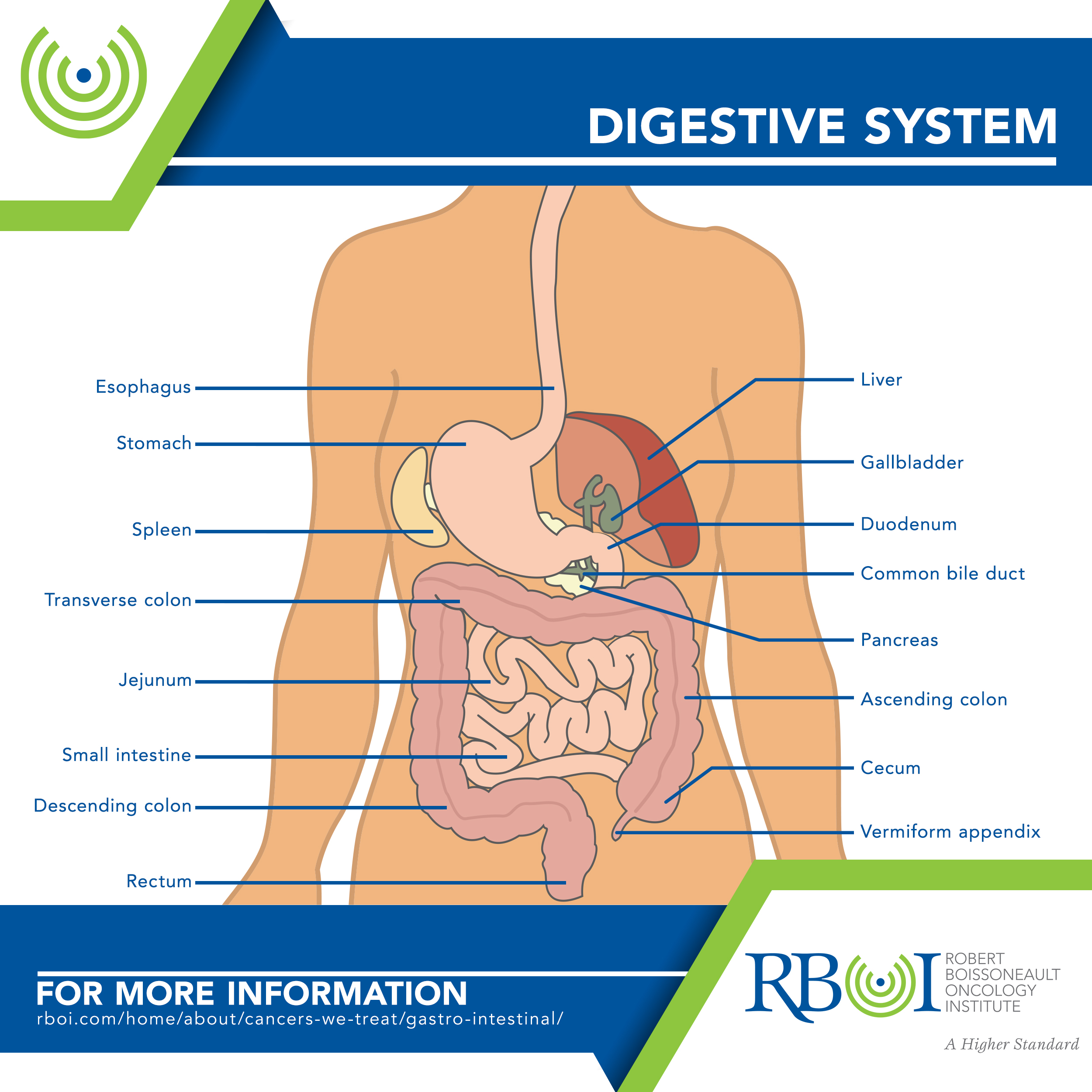Anal Cancer
Anal cancers can occur above or below the anal verge, which marks the place where the anus changes from being inside the body to being outside the body. Cancers occurring in the anal canal (the area between the anal verge and the rectum) may be treated differently than cancers occurring in the anal margin (the area between the anal verge and the outside skin at the anus).
-
Forms of anal cancer
Squamous cell carcinoma occurs in almost 90 percent of anal cancers. It begins in the outer lining of the anal canal.
Cloacogenic carcinoma (also called basaloid or transitional cell carcinoma) is a type of squamous cell cancer and accounts for about 25 percent of anal cancers. This cancer develops between the outer part of the anus and the lower part of the rectum, in the transitional zone, also called the cloaca.
Adenocarcinoma develops in the glands that make mucous located under the anal lining.
Basal cell carcinoma is a type of skin cancer that can appear in the perianal (around the anus) skin.
Melanoma begins in cells that produce color found in the skin or anal lining.
Carcinoma in situ (also called Bowen disease) is seen by some as the earliest form of anal cancer, while others call it pre-cancerous. In this condition, abnormal cells on the inner surface layer of the anus look like cancer cells but have not grown into any of the deeper layers.
Gastrointestinal stromal tumors (GISTs) are rare in the anal region and are much more common in the stomach or small intestine.
-
Risk factors for anal cancers
Age, Anal fistula, Cigarette smoking, Frequent anal irritation, Gender and race/ethnicity, Having certain other cancers, Human papilloma virus (HPV), Lowered immunity, Sexual activity
Age — Most people diagnosed with anal cancer are between age 50 and 80.
Anal fistula — An anal fistula is an abnormal tunnel between the anal canal and the outer skin of the anus, and may increase the risk of developing anal cancer.
Cigarette smoking — Smokers are about 8 times more likely to develop anal cancer than nonsmokers. Quitting smoking seems to reduce the risk.
Frequent anal irritation — Frequent anal redness, swelling, and soreness may increase the risk of developing anal cancer.
Gender and race/ethnicity — Anal cancer is more common in women than in men overall, but this varies in racial/ethnic groups and can vary with age. For instance, in African Americans younger than age 60, it’s more common in men than in women, but after age 60 it’s more common in women.
Having certain other cancers — Women who have had cancer of the cervix, vagina, or vulva are at increased risk of anal cancer, probably because these cancers are also linked to infection with HPV. In men, studies have not yet found a link between penile cancer (also related to HPV) and anal cancer.
Human papilloma virus (HPV) — This virus causes papillomas (warts). Anal warts are unlikely to develop into anal cancer, but people who have had anal warts are more likely to get anal cancer. The two types of HPV that cause most cases of anal and genital warts are HPV-6 and HPV-11.
Lowered immunity — People with a disease or condition affecting the immune system, such as human immunodeficiency virus (HIV) or organ transplantation, are more likely to develop anal cancer. People who take immunosuppressive drugs that make the immune system less able to fight disease are also more likely to develop anal cancer.
Sexual activity — Having multiple sex partners, and having receptive anal sex, increases the risk of infection with HIV and HPV. It also increases the risk of anal cancer.
-
Symptoms of anal cancer
Bleeding from the anal area; this is often the first sign of the disease.
Pain or pressure in the anal area
Itching or discharge from the anus
A lump or swelling near the anus
Pain or a feeling of fullness in the anal area
A change in bowel habits or change in the diameter (narrowing) of the stool
Swollen lymph nodes in the anal or groin areas
-
How is anal cancer treated with radiation?
External-beam radiation therapy (EBRT) is the type of radiation therapy most often used to treat anal cancer. Often, special types of external beam radiation, such three-dimensional conformal radiation therapy (3D-CRT) and intensity modulated radiation therapy (IMRT) are used, to limit damage to nearby normal tissues.
Radiation may be used as part of the main treatment (along with chemotherapy) for most anal cancers. This is called chemoradiation.
Radiation may be used after surgery (and with chemotherapy) to try to kill any areas of cancer cells that may have been left behind but are too small to see.
Radiation may be used to help treat cancer that has come back in the lymph nodes after initial treatment, or to help control cancer that has spread.
Radiation may be used as palliative therapy to relieve symptoms (such as pain) in people with advanced cancer.

Click here to learn more about RBOI’s radiation treatment options
Click here to watch a walk-through of what is involved in radiation treatment at RBOI
More extensive information about anal and other cancers may be found at these sites:
American Cancer Society: Cancer.org
American Society of Clinical Oncology: Cancer.net
National Cancer Institute: Cancer.gov
